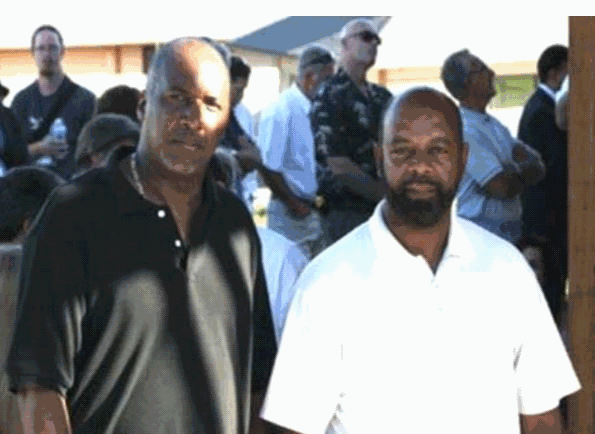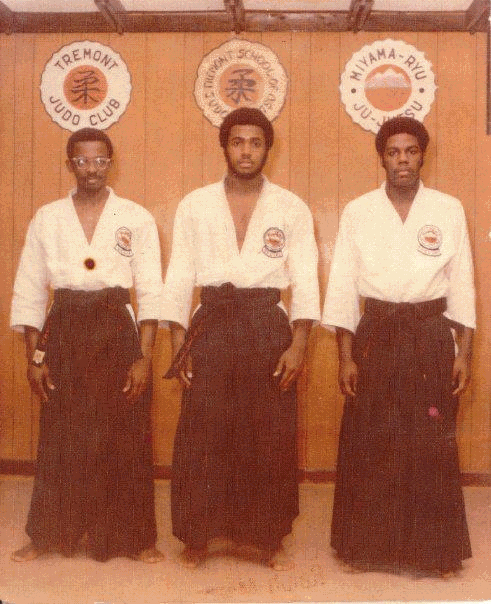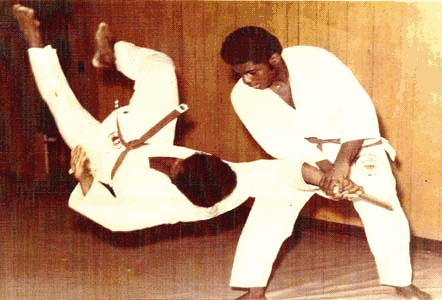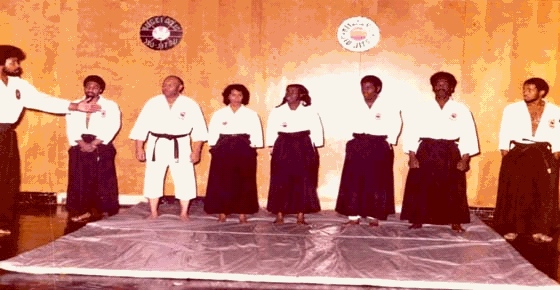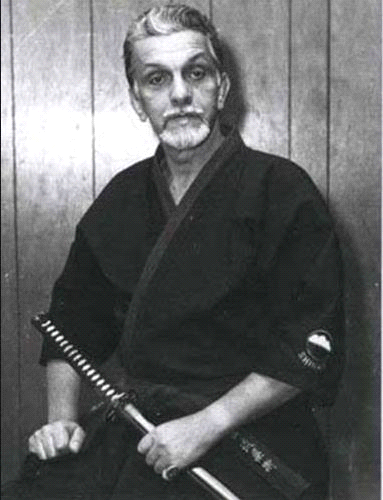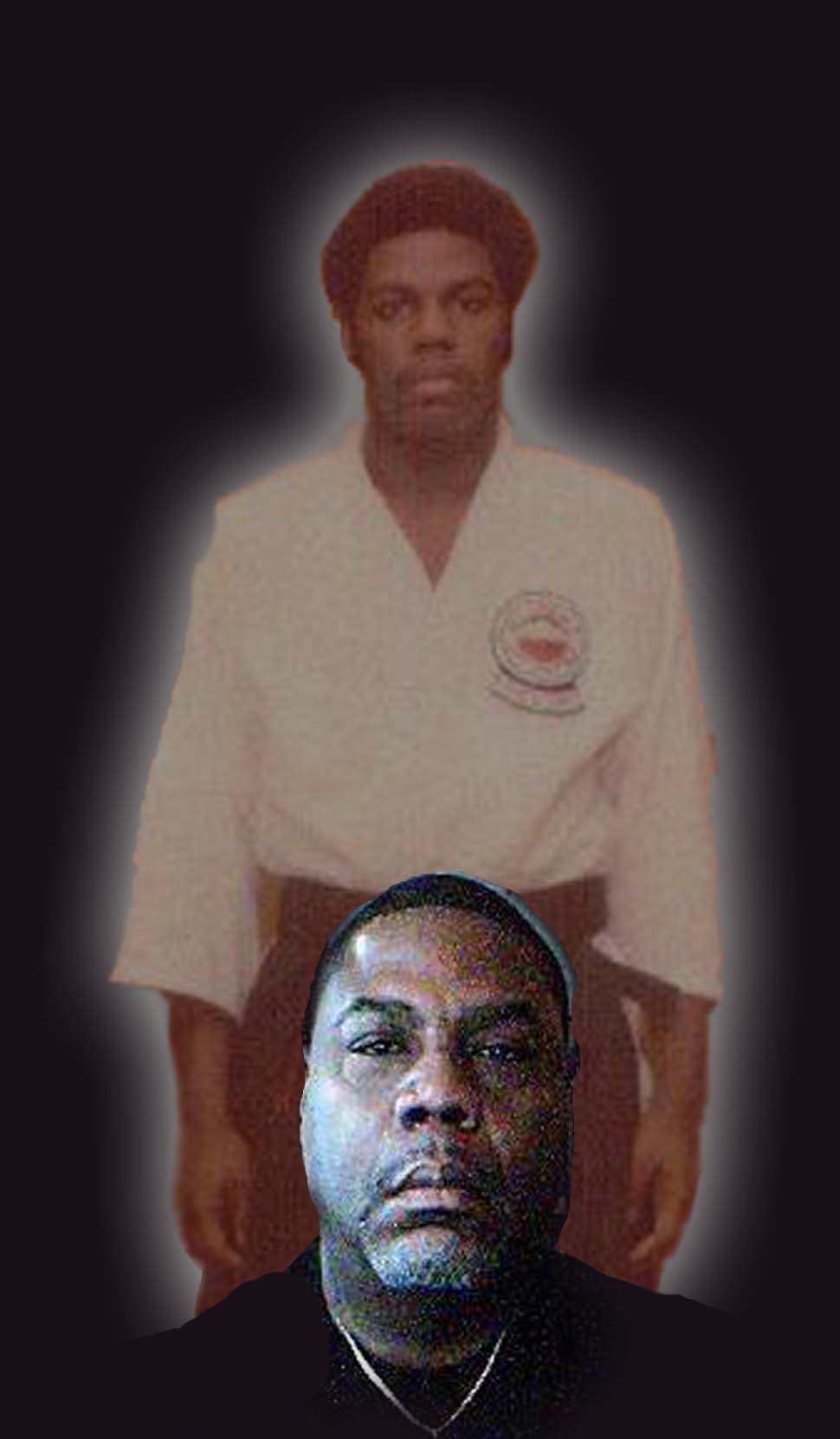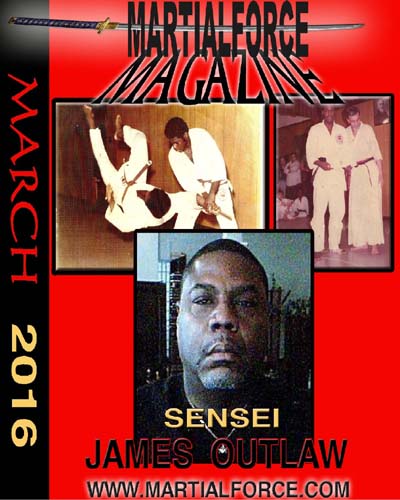MARTIALFORCE.COM
PRESENTS
AN INTERVIEW WITH
JAMES OUTLAW
MARCH / 2016
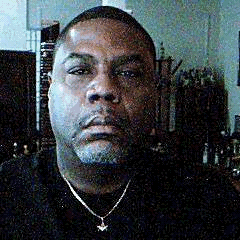
Hi my name is Eddie Morales and welcome to Martialforce.com Online Martial Arts Magazine. The person im introducing in this interview has been a dedicated pratitioner of the Martial Arts for many years. His knowledge is vast and lineage strong. I was introduced to him by Sensei Paul Sequence Ferguson. When we spoke in regards to this interview his demeanor was humble and unasuming. Those that know him can attest that he has very few words as he is a man of action. His name is Sensei James Outlaw. We here at Martialforce.com hope you enjoy this interview as we explore his life and the art he is passionate about.
Interview by Eddie Morales
Martialforce.com
Online Magazine
Martialforce.com: Where were you born and raised?
JAMES OUTLAW: New York City, in the Bronx.
Martialforce.com: What is your current occupation?
JAMES OUTLAW: I am a retired electronic technician from Minolta Corp.
Martialforce.com: When and where did you begin your Martial Arts training and what was your motivation?
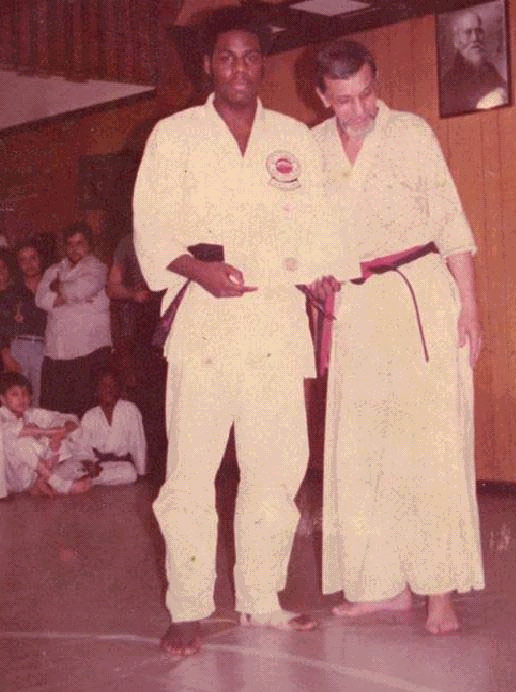
JAMES OUTLAW:
My actual beginning was as a freshman in High School, 74. I knew I wanted to start but could not decide which art suited me. A teacher who was also the wrestling coach help me decide on jui juitsu. At the time it was not as popular as karate. Tremount School of Judo and Juitsu, Mi Yama Ryu, was a Bronx landmark. The large sign painted on the side of the building always intrigued me. Once I got up the courage to walk up those three long flights of stairs, my next challenge was Shihan Antonio Pereira. At the time you had to be 18 for jiu juijutsu or you had to study Tae Kwon Do or Judo. I guess he got tired of this 14 year old annoying him. The loud kiaís and vibrations of the building from people hitting the mat was very intimidating but i went forward.A few years later I happen to be at a tournament in Brooklyn and saw Shihan Errol Bennett. There was no jui juitsu competition at the time. Sensei Bennett so impressed me with his kata and fighting s
